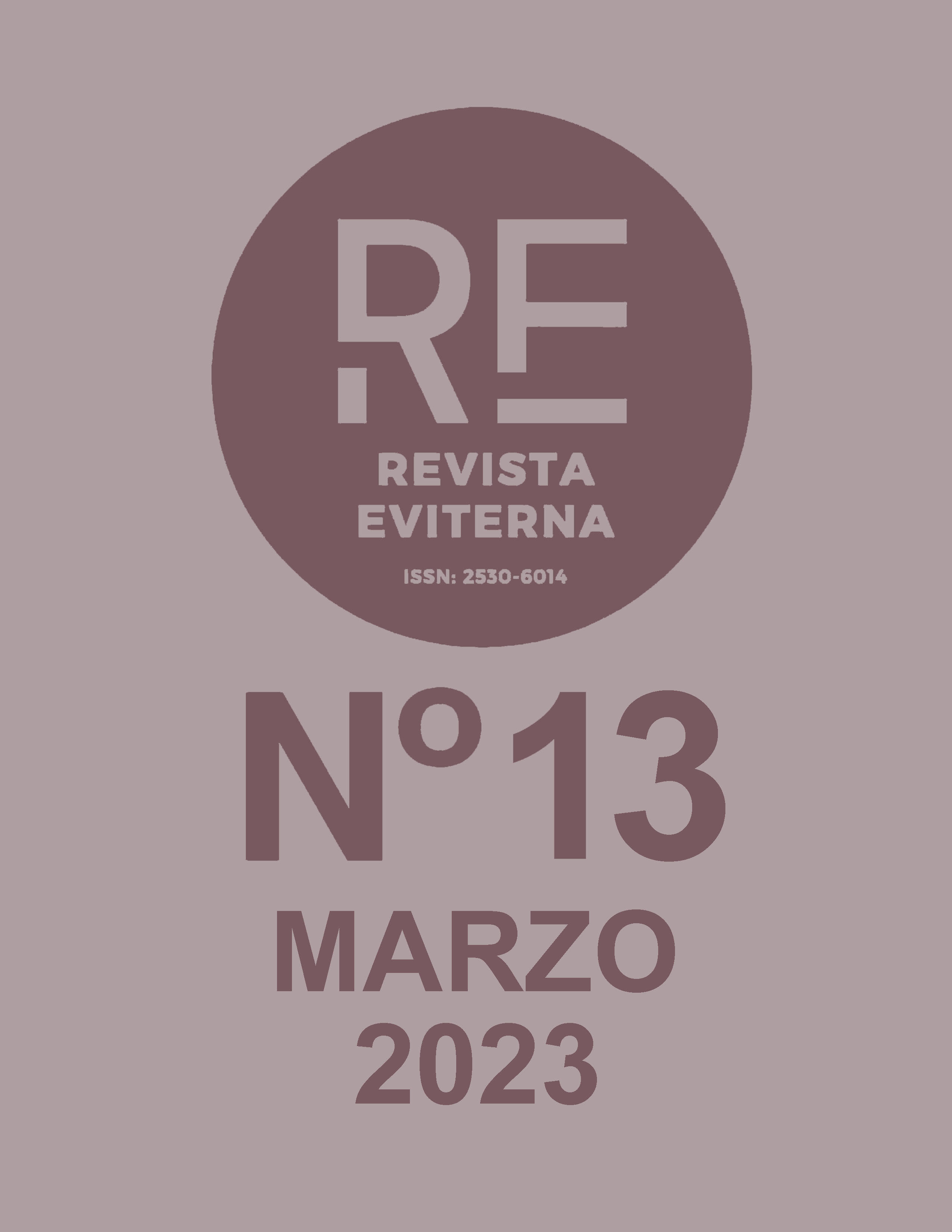Hostages of the form
An approach to the treatment of dystopia in cinema
DOI:
https://doi.org/10.24310/Eviternare.vi13.15595Keywords:
chronotope, science-fiction, didactism, stylization, utopiaAbstract
Antonio Santos’ book Tiempos de ninguna edad. Distopía y cine (Times of any age. Dystopia and cinema) is the opportunity to dialogue with the work, about the dystopian discursive genre and from a genealogical perspective that takes us back to its literary origins. If for Juan Ignacio Ferreras the science fiction novel is a romantic fiction that projects in a hypothetical future the social relationships in force at the time of its writing, two other concepts of bakhtinian roots well define the ideological and formal specificities of the genre. Thus, dystopia resorts to a relationship between time and space (chronotope) that facilitates the critique on the present through an imagined future. At the same time, it constructs the narrative space through a stylization that questions the forms and ideas of those which are carriers. However, despite its different genealogy, dystopia maintains some homologies with the utopian genre, tending to configure a dogmatic thought. This dogmatism is verified in a more intense way in its literary aspect, as didactic genres that they are, than in its cinematographic derivations. However, somehow it interferes with our common sense, both in the public and private spheres, although this question goes beyond the limits of this work.
Downloads
Metrics
Publication Facts
Reviewer profiles N/A
Author statements
Indexed in
-
—
- Academic society
- N/A
- Publisher
- Universidad de Málaga
References
Adorno, T. W. (1992). Dialéctica negativa. Taurus.
Bajtín, M. M. (1989). Teoría y estética de la novela. Taurus.
Bajtín, M. M. (1993). Problemas de la poética de Dostoievski. Fondo de Cultura Económica.
Beltrán Almería, L. (2002). La imaginación literaria. La seriedad y la risa en la literatura occidental. Montesinos.
Bloch, E. (1977). El principio esperanza. Tomo I. Aguilar.
Casas, Q. (2019). Tiempos de ninguna edad. Distopía y cine. Dirigido. Revista de cine, 500, 95.
Eagleton, T. (1998). Walter Benjamin o hacia una crítica revolucionaria. Cátedra.
Eagleton, T. (2013). El acontecimiento de la literatura. Península.
Ferreras, J. I. (1977). La novela de ciencia ficción. Siglo XXI de España Editores.
Autor (2018). Cuestión de formas. El tratamiento de la utopía en el cine. En Biblio3W. Revista Bibliográfica de Geografía y Ciencias Sociales. Recuperado de:
<http://www.ub.es/geocrit/b3w-1224.pdf>.
R.A.E. Diccionario de la lengua española, 2018.
Reynoso, Carlos (2000). Apogeo y decadencia de los estudios culturales. Gedisa.
Santos, A. (2017). Tierras de ningún lugar. Utopía y cine. Cátedra.
Santos, A. (2019). Tiempos de ninguna edad. Distopía y cine. Cátedra.
Santos, A. (21 de mayo de 2019). Entrevista con Antonio Santos. Sobretextos. Recuperado de:
<https://www.ivoox.com/sobretextos-entrevista-a-antonio-santos-aparicio-audios-mp3_rf_36881124_1.html>.
Downloads
Published
How to Cite
Issue
Section
License
All the contents published in Revista Eviterna are subject to the Creative Commons Reconocimento-NoComercia-Compartirigual 4.0 license, the full text of which can be found at <http://creativecommons.org/licenses/by-nc-sa/4.0>
They may be copied, used, disseminated, transmitted and publicly exposed, provided that:
The authorship and original source of your publication (Journal, editorial and URL of the work) are cited.
They are not used for commercial purposes.
The existence and specifications of this use license are mentioned.

Copyright is of two kinds: moral rights and patrimonial rights. Moral rights are perpetual, inalienable, inalienable, inalienable, inalienable and imprescriptible prerogatives.
In accordance with copyright legislation, Revista Eviterna recognizes and respects the moral rights of the authors, as well as the ownership of the economic right, which will be transferred to the University of Malaga for dissemination in open access.
The economic rights refer to the benefits obtained by the use or disclosure of the works. Revista Eviterna is published in open access and is exclusively authorized to carry out or authorize by any means the use, distribution, disclosure, reproduction, adaptation, translation or transformation of the work.
It is the responsibility of the authors to obtain the necessary permissions of the images that are subject to copyright.







12.png)



